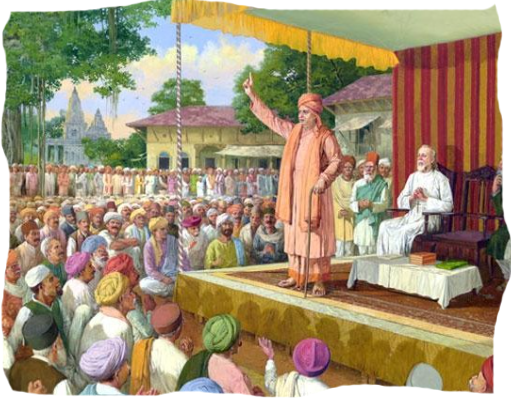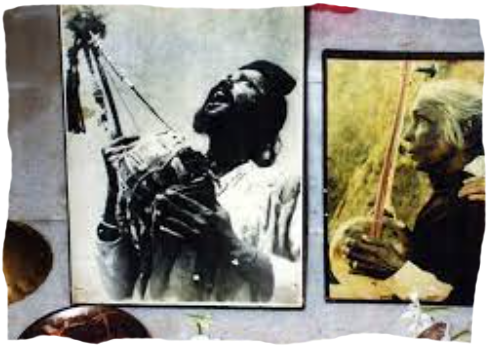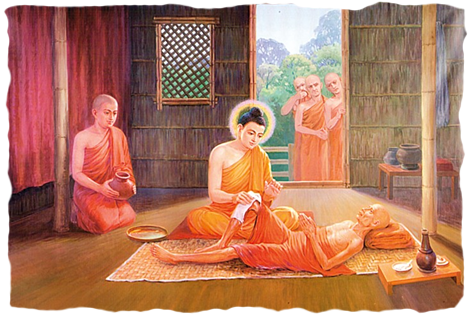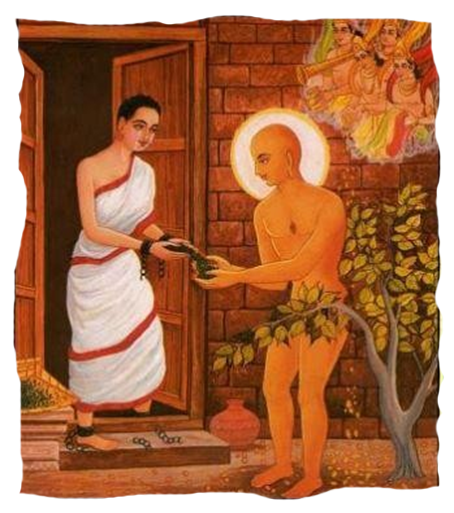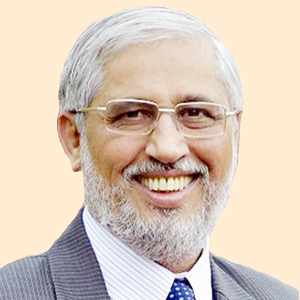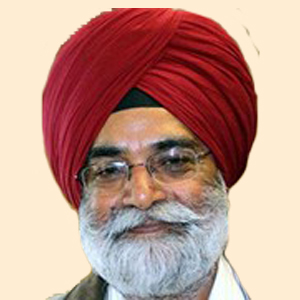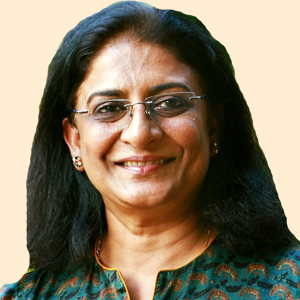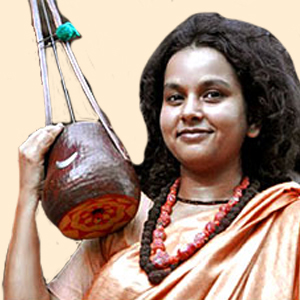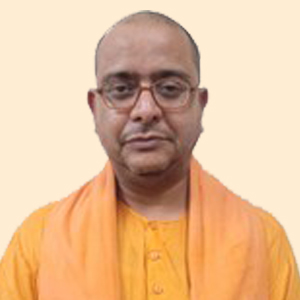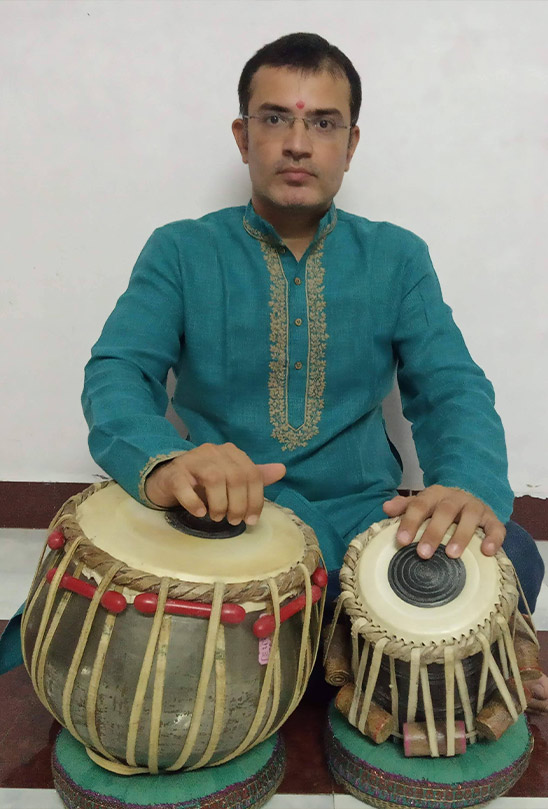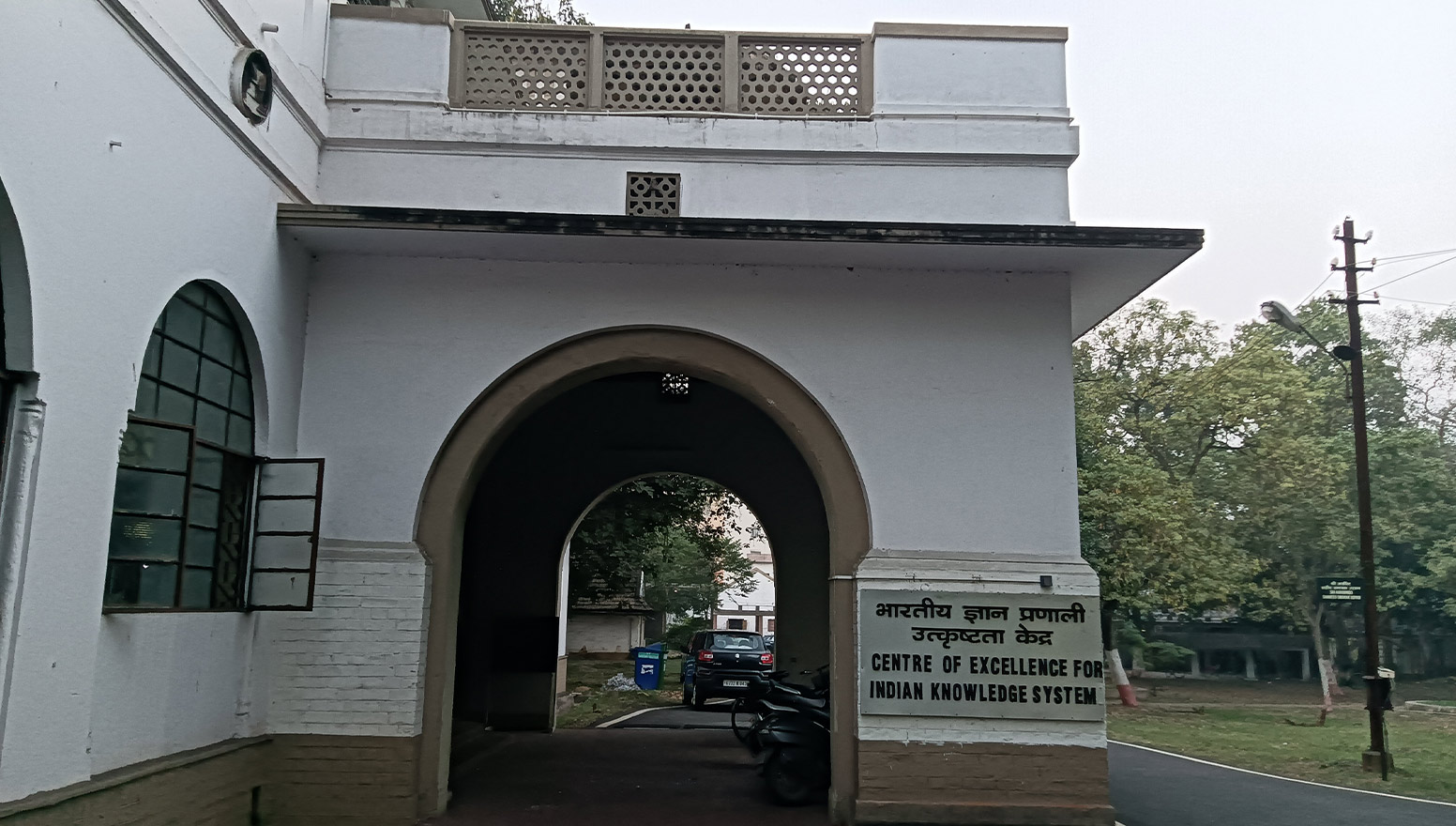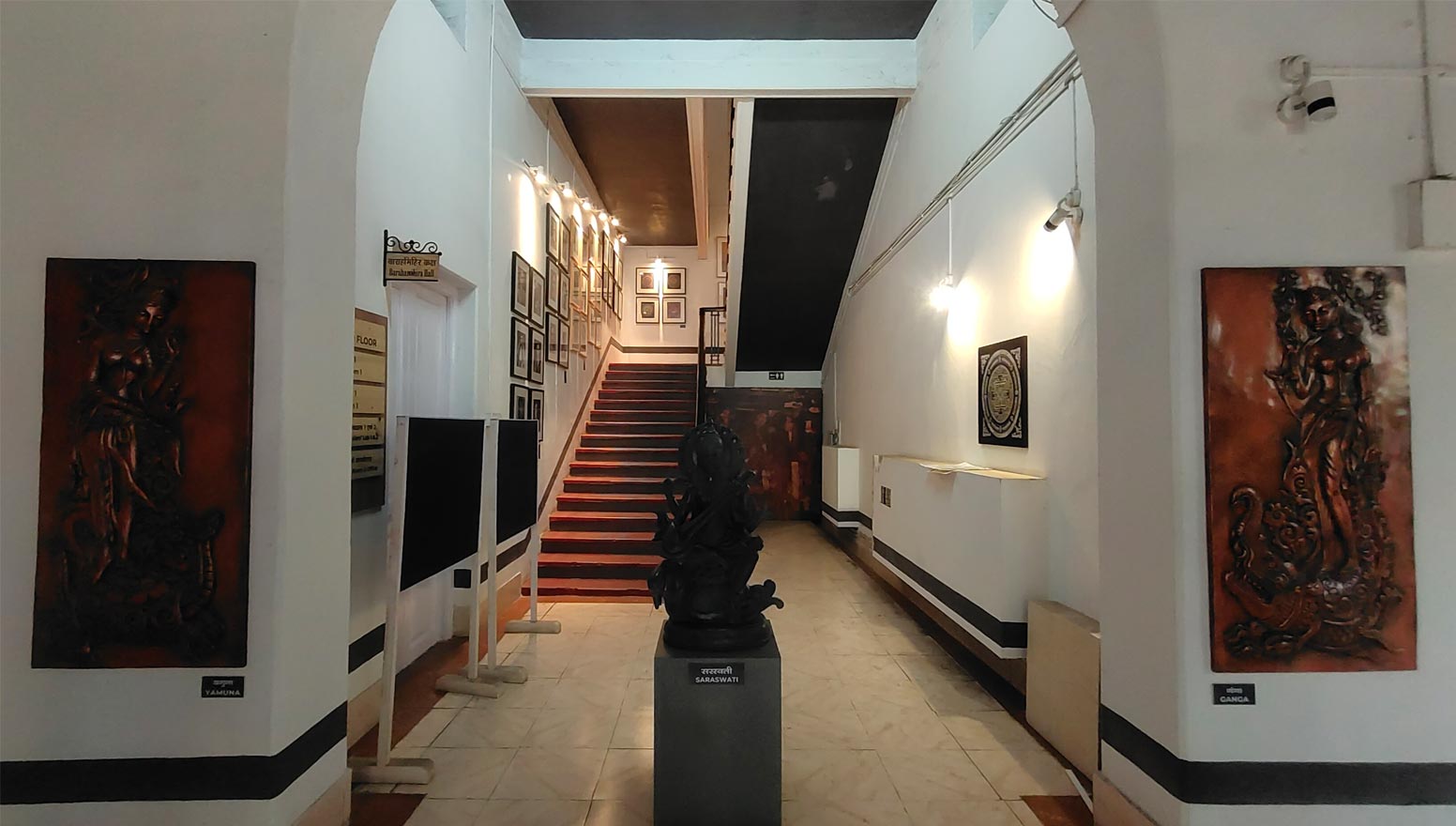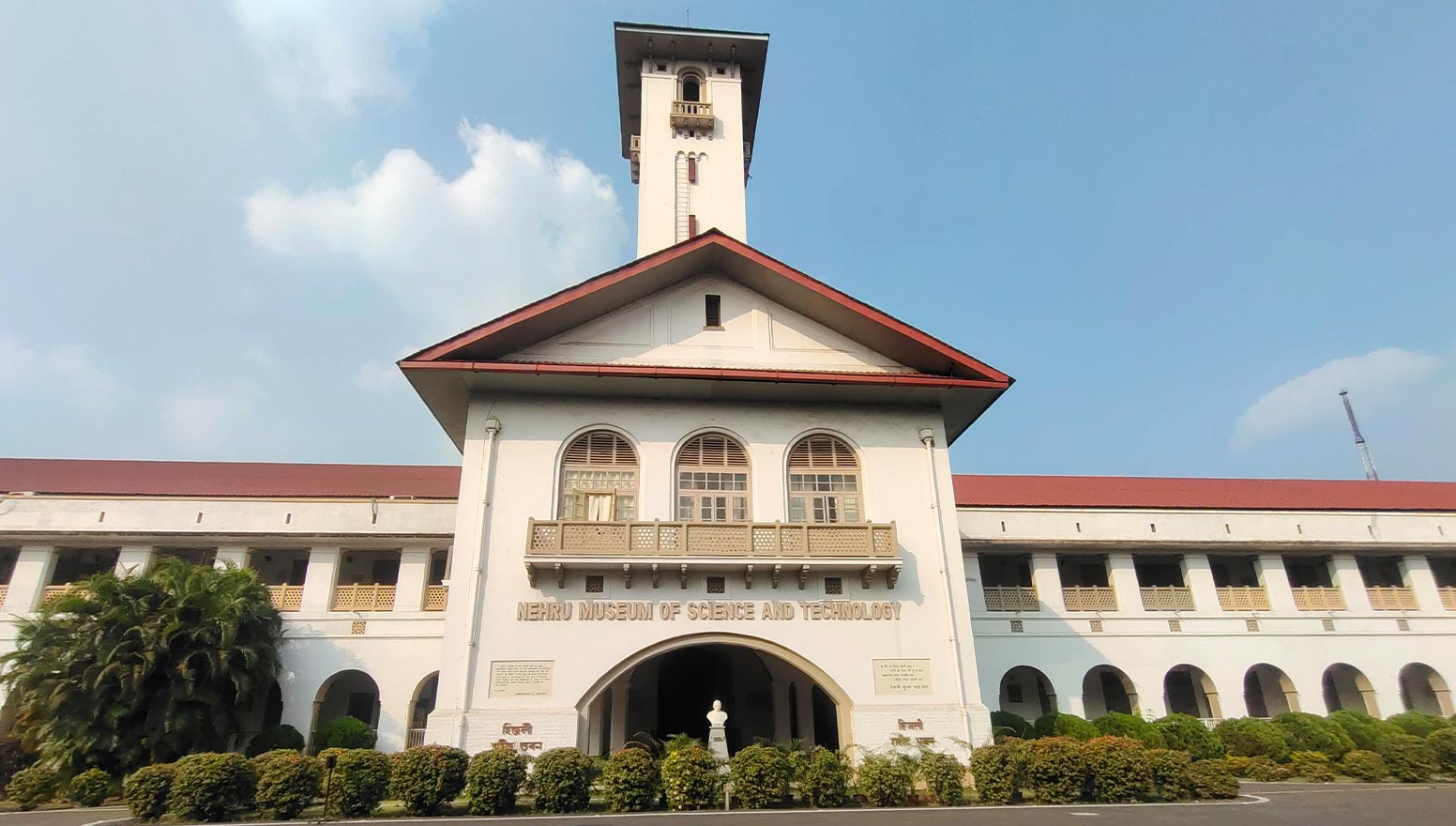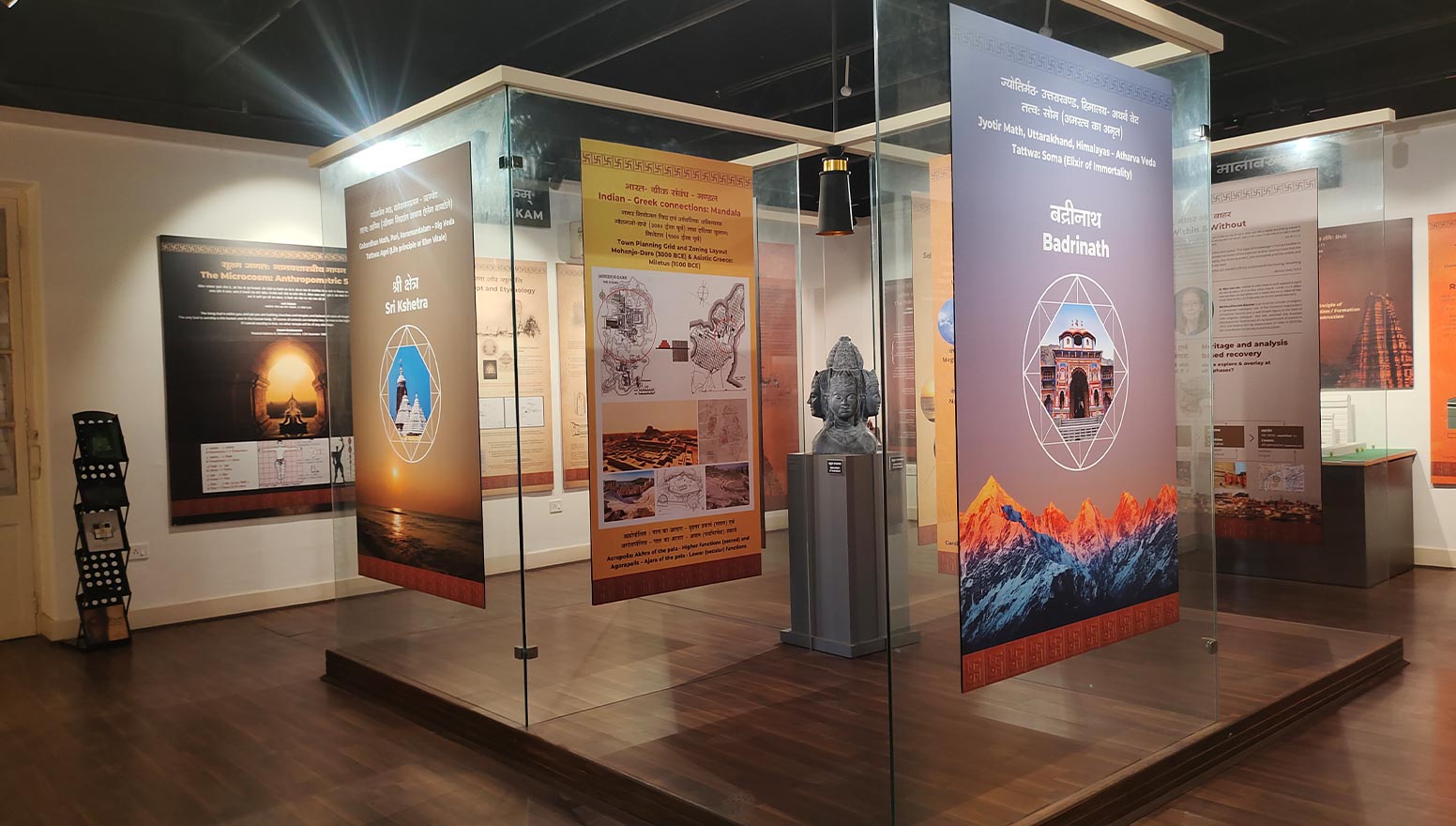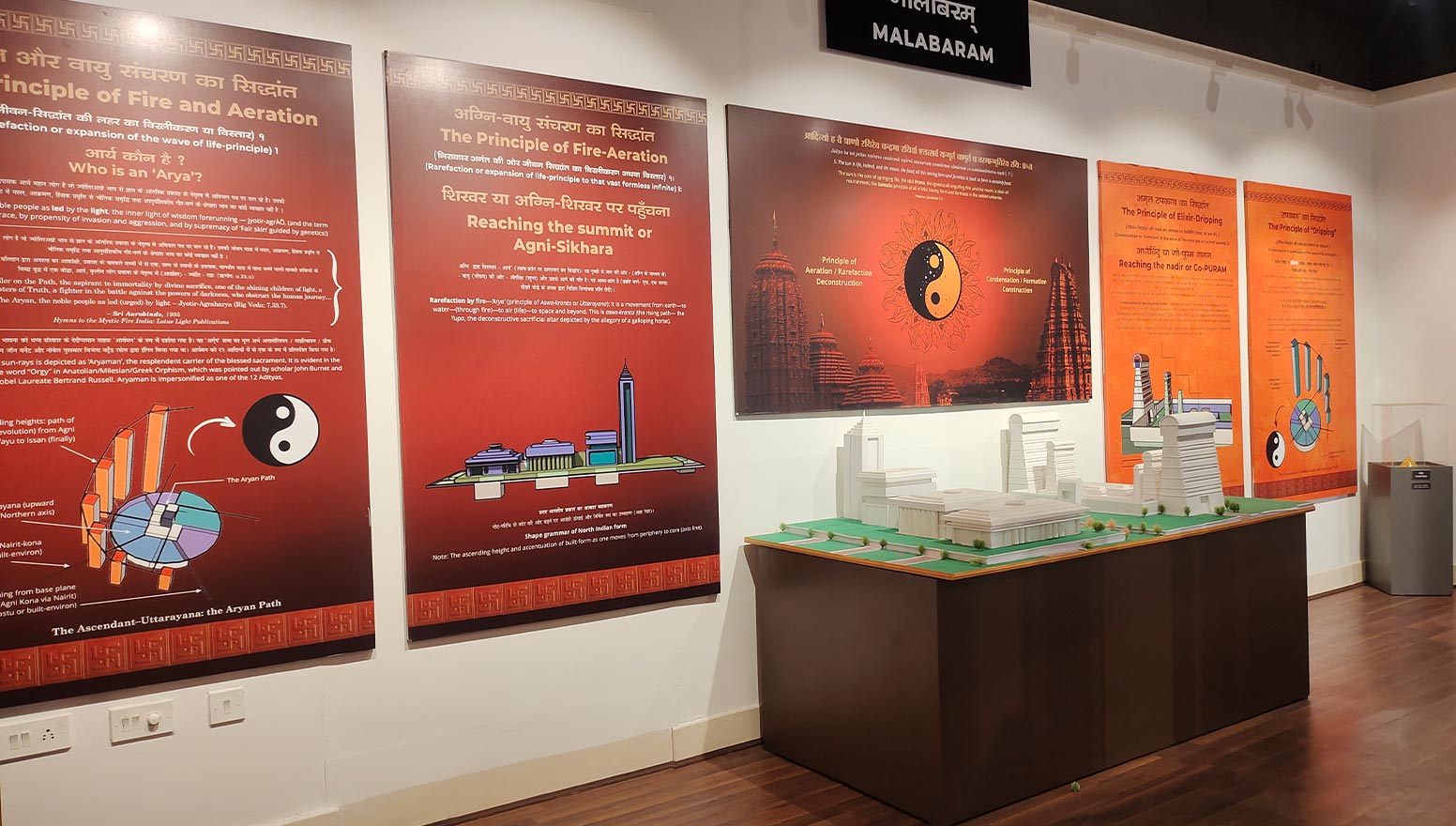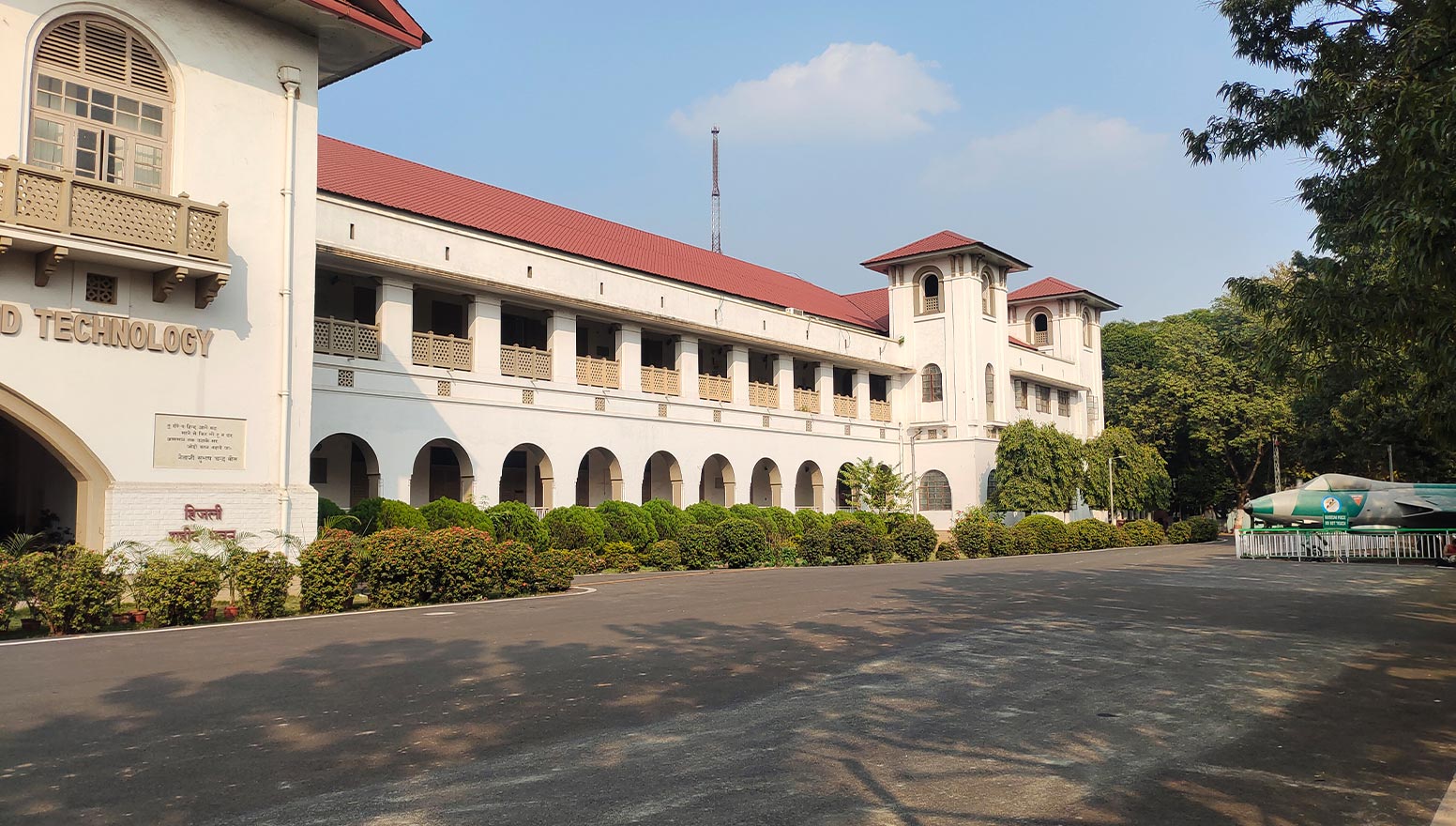Swami Vivekananda (1863 - 1902), an Indian monastic and philosopher, exemplified niṣkāma sevā through the establishment of the Ramakrishna Math & Ramakrishna Mission in 1897. His visionary leadership extended across diverse domains, including education, healthcare, cultural activities, rural and tribal welfare, youth movements, and spiritual teachings. The mission, under his guidance, operates hospitals, clinics, and educational institutions.
A. C. Bhaktivedanta Swami Prabhupada (1896-1977), an Indian spiritual teacher, founded The International Society for Krishna Consciousness (ISKCON) in 1966, integrating spirituality with niṣkāma sevā. Notably, The Bhaktivedanta Book Trust (BBT), International Society for Cow Protection (ISCOWP), ISKCON Tribal Care Trust (ITCT), and Pandava Sena are integral initiatives affiliated with ISKCON, actively contributing to spiritual, educational, environmental, and community welfare domains.
Swami Dayananda Saraswati (1824-1883), an Indian philosopher, social leader, and founder of the Arya Samaj, demonstrated niṣkāma sevā through his advocacy for social and religious reforms. His emphasis on education for all and work towards social equality in the 19th-century India was groundbreaking. Swami Dayananda's contributions included opposition to untouchability, promotion of equal rights for women, and his commentary on the Vedas in Vedic Sanskrit and Hindi.
Guru Nanak Dev (1469 – 1539), the founder of Sikhism, laid down fundamental beliefs emphasizing niṣkāma sevā. laṅgar - the community kitchen instituted by Guru Nanak in 1500 CE, exemplifies the principle of sevā, providing free meals to anyone in need to foster equality and serve all, regardless of caste or creed.
Lalon Shah (1772-1890), known as Lalon Fakir, a prominent Bengali spiritual leader, promoted niṣkāma sevā through inclusive teachings that transcended religious boundaries. His philosophy left a lasting impact on the cultural and spiritual landscape, making him a revered figure in the Baul sampradāya and a key influencer in social reform. The Baul sampradāya, rooted in mystical traditions in Bengal, centers on spiritual exploration through music and poetry, with adherents contributing to community well-being.
Sant Tukaram (1598/1608-1649/1650), a Hindu Marathi saint of the "Vārakarī sampradāya" in the 17th century, embodied niṣkāma sevā through devotion to God and humble assistance to the needy. Tukaram's efforts for social reform aligned with the broader Bhakti movement's goal of fostering unity, emphasizing practical acts of kindness and compassion, irrespective of caste or gender.
Gautam Buddha (563 BCE / 480 BCE - 483 BCE / 400 BCE), a wandering ascetic and religious teacher, founded Buddhism. Buddha cared for and treated ill monks within the monastic community, demonstrating compassion and concern for others' well-being on their spiritual path.
Bhai Kanhaiya (1648–1718), a devoted Sikh of Guru Tegh Bahadur, engaged in niṣkāma sevā in the laṅgar, later became the Guru's water bearer. Despite facing criticism for providing water to both sides during tumultuous events in 1704, Kanhaiya explained to Guru Gobind Singh that he saw no enemies on the battlefield, only people. Impressed by his compassion, the Guru not only provided medical aid but also acknowledged Bhai Kanhaiya's distinctive mission, eventually naming it the Sewa Panthi Sampradaye. This sampradāya embodies niṣkāma sevā with initiatives ranging from providing food and shelter to healthcare and education.
Chandanbala (born in 600 BC), one of the 16 satīs in Jainism, exemplified niṣkāma sevā in a touching story. After enduring three days of hunger, she offered her only plate of food to Bhagavāna Mahāvīra, symbolizing profound compassion, detachment, ahiṃsā (non-violence), and the willingness to alleviate the suffering of others.
Ananda (5th–4th century BCE), the primary attendant of
the Buddha and one of his ten principal disciples, played a crucial
role in preserving and disseminating his teachings. Ananda's
kindness, unselfishness, popularity, and thoughtfulness were
praised by Buddha before his death. His unwavering commitment to
benefiting others through Buddha's wisdom forms a tableau of
shared knowledge and niṣkāma sevā.



 Indian Institute of Technology Kharagpur (IIT Kharagpur)
Indian Institute of Technology Kharagpur (IIT Kharagpur) Indian Council of Social Science Research (ICSSR), Ministry of Education
Indian Council of Social Science Research (ICSSR), Ministry of Education Ministry of Education, Government of India
Ministry of Education, Government of India Indian Knowledge System, Ministry of Education
Indian Knowledge System, Ministry of Education Brhat Culture Creative LLP
Brhat Culture Creative LLP

